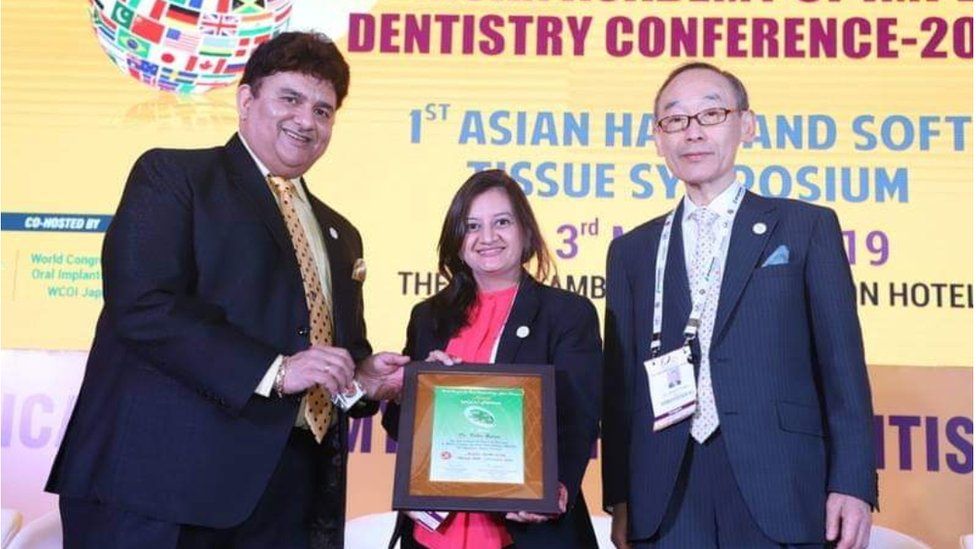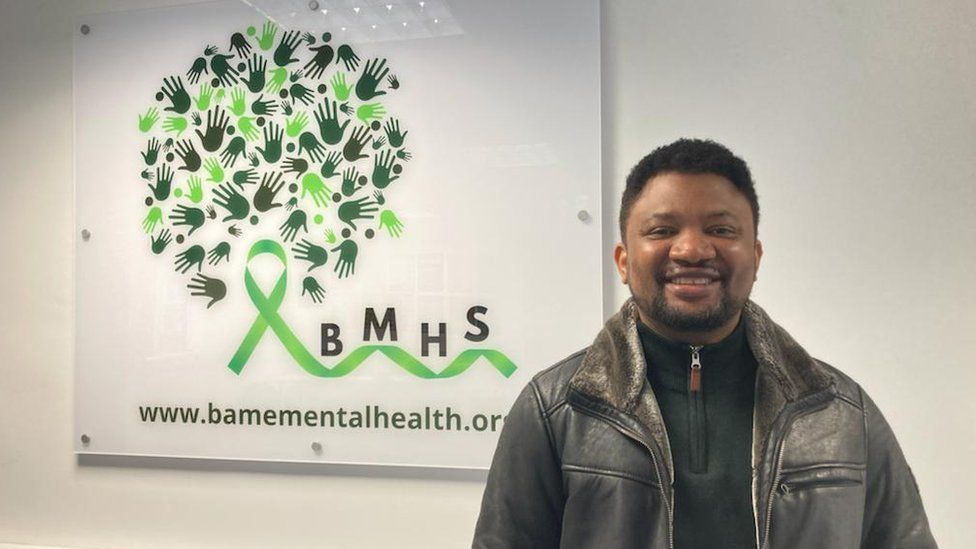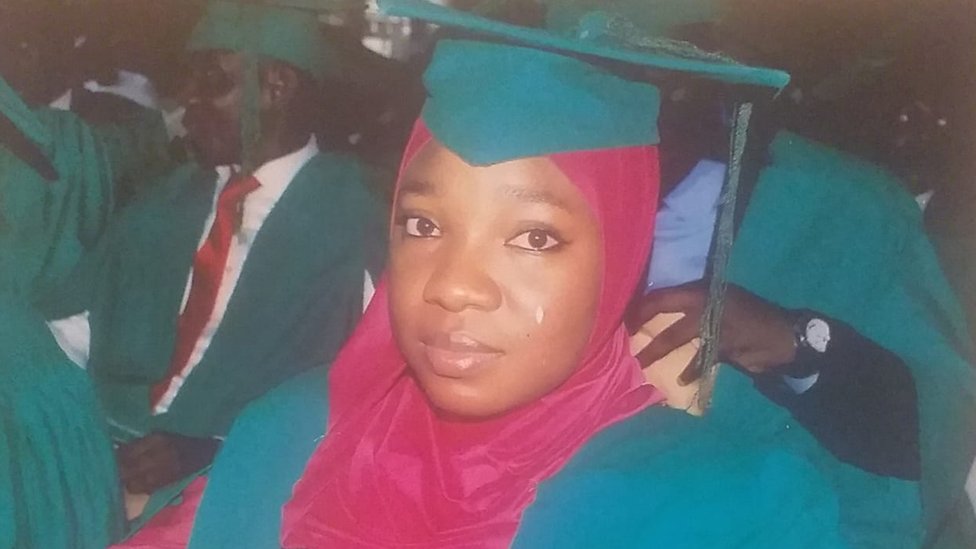International students are turned away from Welsh jobs because they are “not trusted,” according to one graduate.
Sherifat Abubakar, 33, spent her life savings to come to Wales for a Masters degree, but has failed to get a full-time job in healthcare.
BAME Mental Health Support (BMHS) said this was a common experience, resulting in a “brain drain” of talent.
The Welsh government said it will launch its new plan for employability and skills on Tuesday.
In an annual survey by the Higher Education Statistics Agency (HESA), 50% of UK students who graduated from Welsh universities were in full time jobs 15 months after finishing their undergraduate degree.
But for international students, it was just 34%.
The gap does narrow for post-graduate students, but these latest figures come from students who graduated before the pandemic – the class of 2018-19 – and there are fears Covid could have made things worse.
‘I get turned down for no obvious reason’

Ms Abubakar left her five-year-old daughter in Nigeria in 2021 and paid £18,000 for her MSc in public health and health promotion at Swansea University.
She thought the degree would open the door to jobs in Wales but now she feels it “doesn’t count” after being rejected from numerous jobs.
Like so many other international students, she is on a student visa which is dependant on getting a job.
She said she should have qualified for a Band 7 NHS job after her degree – starting from about £40,000 a year – but has even been turned away from Band 2 carer jobs, despite the demand.
It has left her wondering whether she will have to return to Nigeria without a job.
“The labour market is not very trusting of non-Welsh or non-UK experience, but I just want a chance to do something, to contribute,” she said.
“I expected that if they need staff and I’m willing I should be able to get the job, but then I get turned down for no obvious reason and that’s surprising and disappointing.”
“Sometimes I have this thought ‘what if it doesn’t work out positively?’ Then it would have been a pointless sacrifice.”
‘I’ve been a dentist for 17 years and I can’t work’

Covid has also played a part.
Vibha Gulati, 40, was a dentist for 17 years in India.
She has post-graduate qualifications in orthodontics, aesthetic dentistry and implantology, but came to Wales to improve her skills with a master’s degree in public health.
She was aware she would have to sit a licensing exam to practice in the UK but those exams were cancelled in 2020 and 2021 due to the pandemic.
It has left her feeling helpless and she may have to return to India if she cannot get a place on this year’s exam.
“Everything came to a standstill and that created a backlog because there were thousands of candidates waiting to do the exam.
“On the other hand there are such long wait lists in the NHS to be able to see a dentist.”
‘The numbers don’t match’
International students pay a lot of money to study in Wales.
In 2019, the UK government set a target of attracting 600,000 international students a year – which it met 10 years early.
However the Association of Graduate Careers Advisory Services Experts (AGCAS) fears the priority is targets and not support.
Helen Atkinson, internationalisation co-chair at AGCAS, said: “It’s looking really good numbers wise, but what isn’t matched is the focus and the resource that’s put into graduate outcomes and supporting international graduates into employment in the UK.”
She added there was a “frustrating lack of awareness” among employers about perceived logistical barriers to hiring international students.
The UK government has launched a graduate visa to allow students who have completed a degree to stay in the UK for two years. This will rise to three years for those who have done a PhD.
Universities Wales said international students have consistently been more likely to choose to further study after graduating.
A spokesperson added: “Welsh universities have a strong track record of delivering high quality employability and career support to all students and consistently perform well in terms of graduate employability.
“Global Wales and Taith are two programmes that show the commitment Wales has to welcoming and supporting international students, as well as providing them with valuable career enhancing opportunities.”

Alfred Oyekoya set up the charity BMHS in Swansea because he believes economic distress is a key driver for mental health problems in ethnic minority communities.
He also believes Wales is missing out on skilled workers.
After reading about staff shortages in the health sector, he helped more than 40 people – including 20 qualified doctors – submit applications. However none were successful and many did not receive any feedback.
He said: “We are having a brain drain crisis in Wales because we are beginning to lose potential human capital.”
In a statement, Swansea Bay University Health Board’s recruitment team said although it regularly recruited internationally, that could present challenges.
It added: “Taking on staff from overseas, including overseas students, is not always straightforward as their visas, registration and other regulations may restrict their right to work and their immediate employment opportunities.”
Economy Minister Vaughan Gething previously said he wanted to make Wales somewhere people feel “confident about planning their future” so young people do not have to “get out to get on”.
The Welsh government said its economic policy includes looking at ways to retain graduates and talent in Wales by building strong links between universities and businesses, as well as supporting start-ups, including graduate start-ups, with possible incentives in some areas.
Source: BBC

















































